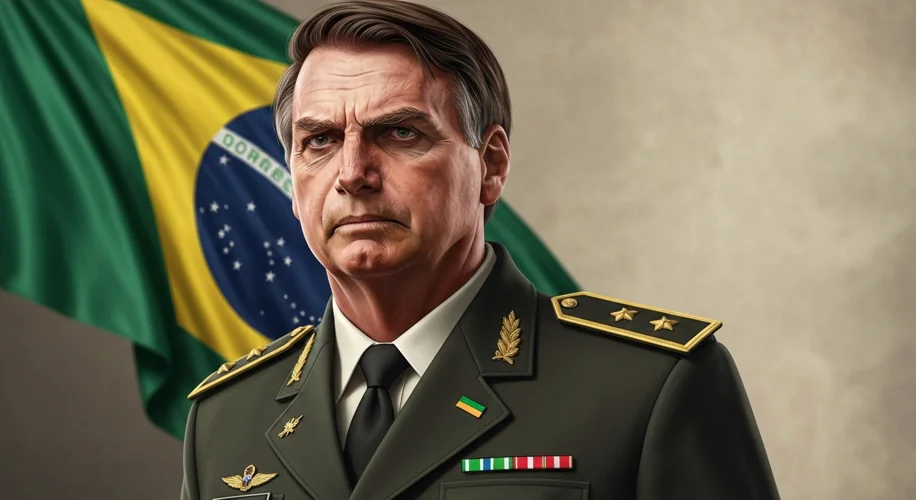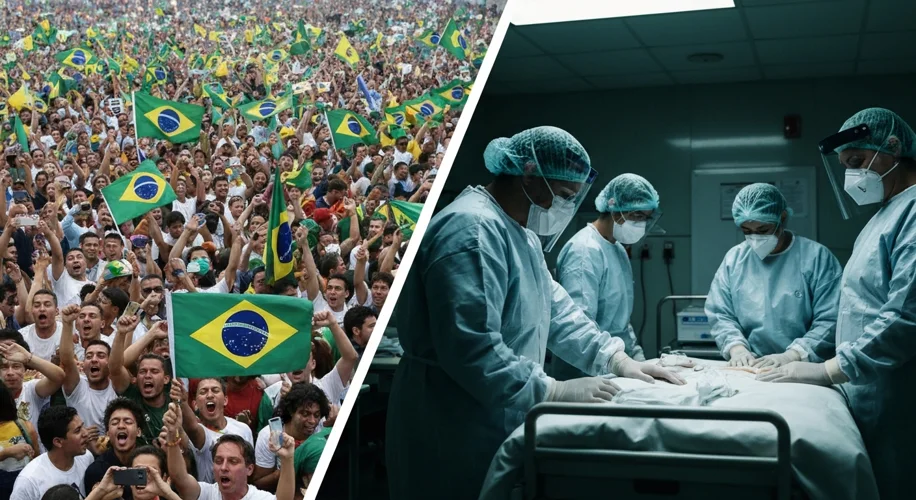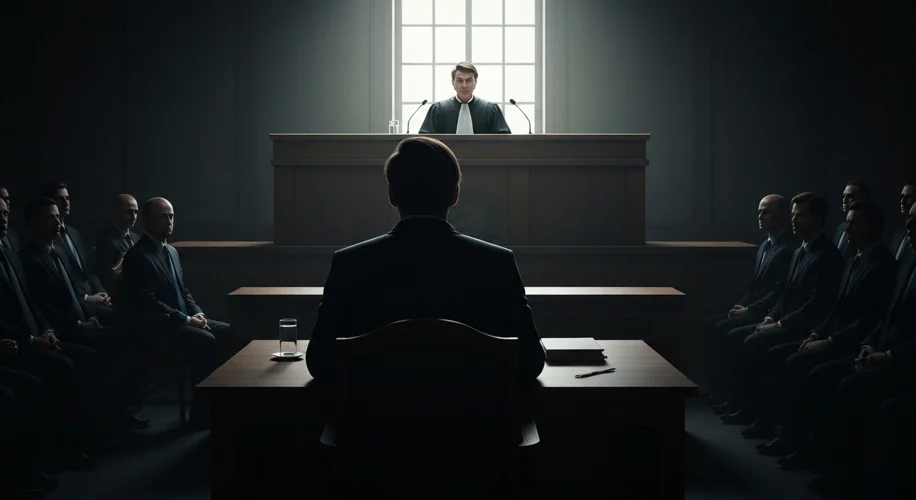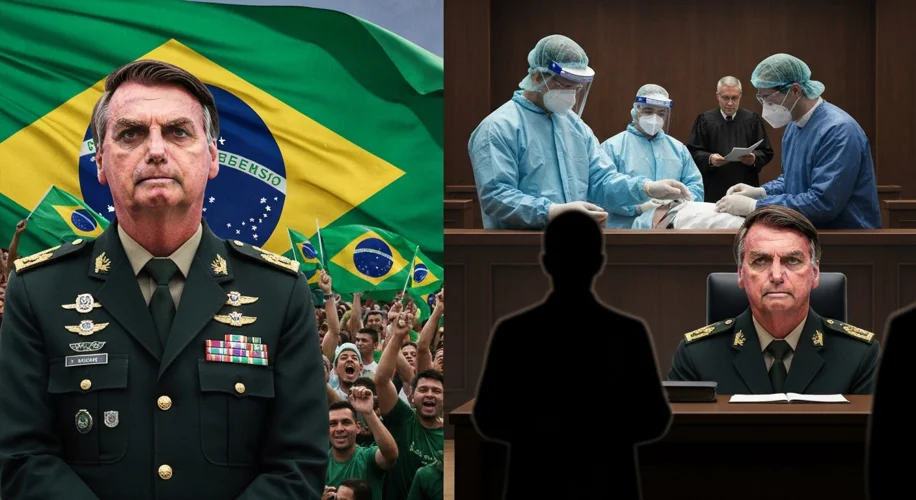Brazil, a nation of staggering beauty and complex contradictions, has witnessed a political drama unfold that has captivated and polarized the world. At its center stands Jair Bolsonaro, a figure who rose from relative obscurity to the highest office, only to find himself ensnared in a web of legal battles and public scrutiny. His journey is a tempestuous saga, a testament to the volatile currents of modern politics and the enduring hunger for decisive leadership, even when that leadership treads a dangerous path.
Born in Glicério, São Paulo, in 1955, Bolsonaro’s early life offered few hints of the political firebrand he would become. A former army captain, his political career began in the 1980s, initially as a city councilor before entering the Chamber of Deputies in 1991. For decades, he remained a fringe figure, known for his outspoken, often controversial remarks and a platform built on law and order, traditional values, and a fervent nationalism. He cultivated an image as an outsider, a man of the people railing against a corrupt and liberal elite.

The political landscape of Brazil in the mid-2010s was fertile ground for such a message. The nation was reeling from a deep recession, rocked by the massive Car Wash (Lava Jato) corruption scandal that implicated high-profile politicians and business leaders, and fatigued by perceived political infighting. The Workers’ Party, which had governed for over a decade, was mired in scandal, creating a vacuum that Bolsonaro, with his unapologetic rhetoric and anti-establishment stance, was perfectly positioned to fill.
His campaign for the 2018 presidential election was unlike any before it. Operating largely without significant traditional media backing, Bolsonaro leveraged social media with remarkable effectiveness. His supporters, a fervent base often referred to as ‘Bolsominions,’ amplified his messages of fighting corruption, tackling crime with an iron fist, and restoring traditional Christian values. His rallies were passionate affairs, his speeches often punctuated by calls for order and a dramatic denunciation of his opponents, whom he frequently labeled as communists or threats to the nation. He promised to ‘drain the swamp’ and bring about a radical change from the status quo.
The election itself was a watershed moment. Bolsonaro secured a decisive victory, resonating with a significant portion of the electorate desperate for a strong leader. His presidency, which began on January 1, 2019, was immediately marked by a whirlwind of policy changes and a confrontational style. He set about dismantling environmental regulations, weakening protections for indigenous communities, and appointing military figures to key government positions. His supporters cheered his decisive actions, seeing them as necessary to pull Brazil out of its malaise. Critics, however, warned of an authoritarian drift and a disregard for democratic norms.
His handling of the COVID-19 pandemic became a particularly grim chapter. Bolsonaro repeatedly downplayed the virus’s severity, resisted lockdowns, and promoted unproven treatments, leading to widespread condemnation and a devastating death toll in Brazil, one of the highest in the world. This period starkly highlighted the deep divisions within the country and the starkly different perspectives on his leadership. While his base remained loyal, often echoing his skepticism towards mainstream science and media, a growing segment of the population viewed his actions as catastrophic and irresponsible.

As his term progressed, the controversies mounted. Accusations of authoritarian tendencies, attacks on democratic institutions, and the controversial rhetoric surrounding elections fueled growing opposition. Bolsonaro’s challenges to the legitimacy of the electoral system, particularly in the lead-up to the 2022 election, raised alarm bells both domestically and internationally.
The inevitable confrontation with the legal system began to crystallize after his presidency concluded at the end of 2022. Despite losing the 2022 election to Luiz Inácio Lula da Silva, Bolsonaro continued to cast doubt on the results. This culminated in the January 8, 2023, riots, where thousands of his supporters stormed and vandalized government buildings in Brasília, mirroring the events of January 6th in the United States. This act of political defiance placed him squarely in the crosshairs of the judiciary.
Investigative bodies began probing Bolsonaro’s alleged involvement in planning the riots, as well as other potential wrongdoings, including alleged corruption related to gifts received during his presidency and attempts to obstruct justice. The Supreme Court of Brazil became a central arena for these legal battles, issuing arrest warrants and initiating inquiries that threatened to dismantle the remnants of his political influence. The once-unassailable figure found himself increasingly isolated, his political future hanging precariously in the balance.

Jair Bolsonaro’s trajectory is a stark reminder of the fragility of democratic institutions and the potent allure of populist leaders who promise radical solutions. His rise was fueled by legitimate grievances and a deep-seated dissatisfaction with the political establishment. His presidency, however, was a period of profound division and controversy, marked by a disregard for established norms and a devastating response to the pandemic. His subsequent legal entanglements serve as a cautionary tale about the consequences of challenging democratic processes and the ultimate accountability that awaits even the most powerful figures when they fall foul of the law.
His legacy remains hotly debated, a Rorschach test for Brazil’s own identity. For his supporters, he was a patriot who fought for traditional values against a corrupt system. For his detractors, he was a dangerous demagogue who threatened the very fabric of Brazilian democracy. The story of Jair Bolsonaro is not just the story of one man; it is a mirror reflecting the turbulent soul of a nation and the enduring challenges of navigating the complex terrain of modern political power.

